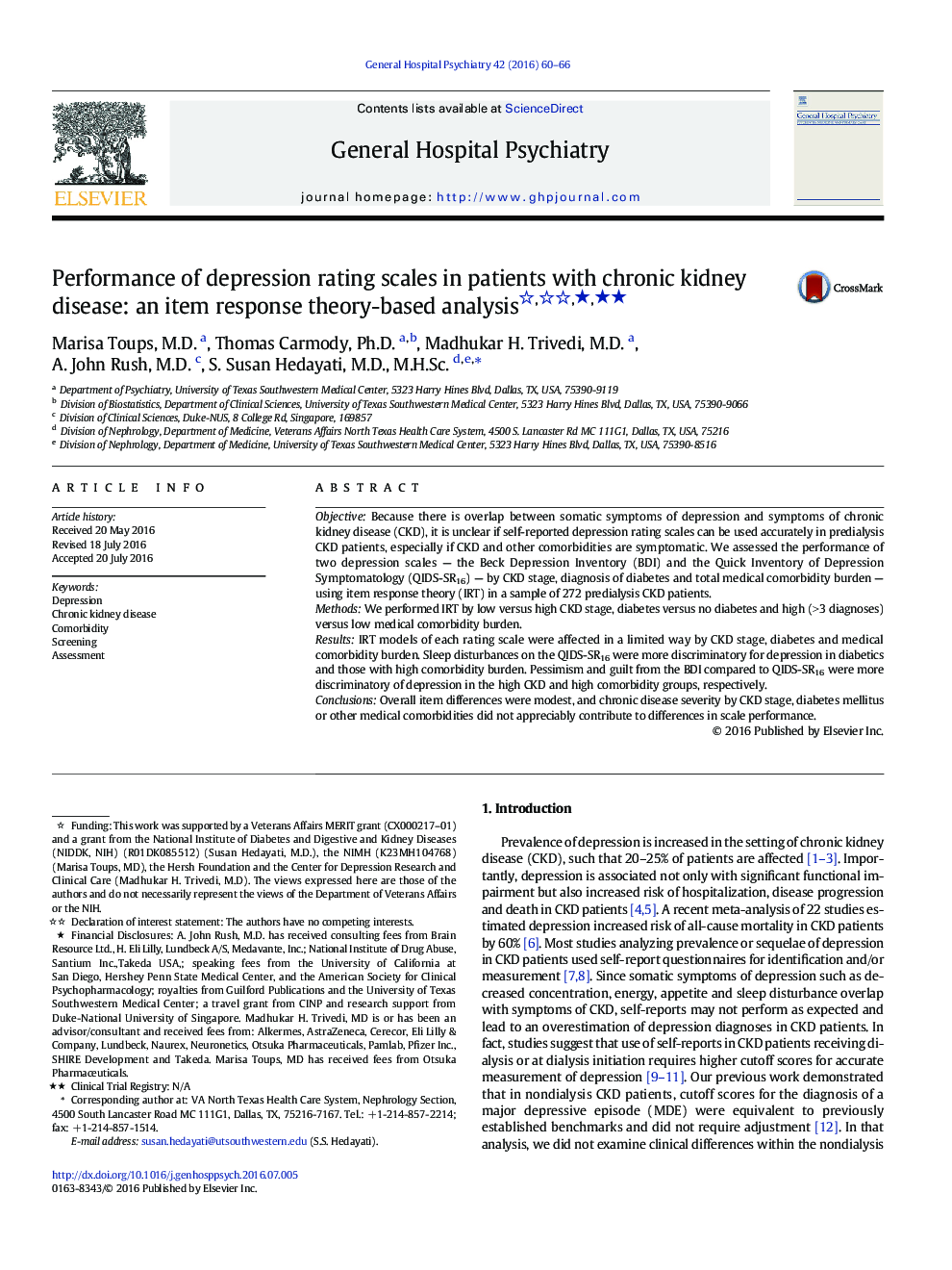| Article ID | Journal | Published Year | Pages | File Type |
|---|---|---|---|---|
| 3237532 | General Hospital Psychiatry | 2016 | 7 Pages |
ObjectiveBecause there is overlap between somatic symptoms of depression and symptoms of chronic kidney disease (CKD), it is unclear if self-reported depression rating scales can be used accurately in predialysis CKD patients, especially if CKD and other comorbidities are symptomatic. We assessed the performance of two depression scales — the Beck Depression Inventory (BDI) and the Quick Inventory of Depression Symptomatology (QIDS-SR16) — by CKD stage, diagnosis of diabetes and total medical comorbidity burden — using item response theory (IRT) in a sample of 272 predialysis CKD patients.MethodsWe performed IRT by low versus high CKD stage, diabetes versus no diabetes and high (>3 diagnoses) versus low medical comorbidity burden.ResultsIRT models of each rating scale were affected in a limited way by CKD stage, diabetes and medical comorbidity burden. Sleep disturbances on the QIDS-SR16 were more discriminatory for depression in diabetics and those with high comorbidity burden. Pessimism and guilt from the BDI compared to QIDS-SR16 were more discriminatory of depression in the high CKD and high comorbidity groups, respectively.ConclusionsOverall item differences were modest, and chronic disease severity by CKD stage, diabetes mellitus or other medical comorbidities did not appreciably contribute to differences in scale performance.
